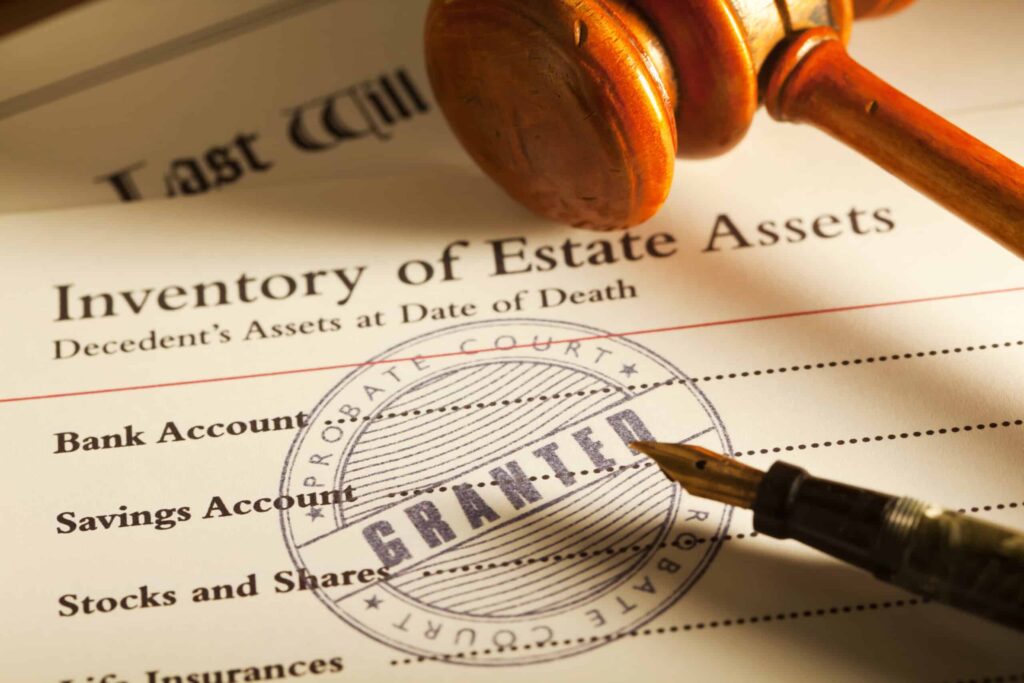If you’re asking yourself, does exempt property get listed in probate in Texas?, you’re already one step ahead in understanding theprobate process. This is a topic many families face after the loss of a loved one, and it’s easy to get tangled up in legal jargon, emotional stress, and administrative confusion. The short answer? Yes, exempt property does get listed in probate—but how it’s treated is what really matters.
In this article, we’re going to walk you through everything you need to know about exempt property in Texas probate court, using real-life examples, plain English explanations, and a conversational tone that keeps things approachable. We’ll dig into what counts as exempt property, why it still gets listed in the inventory, and how Texas law protects surviving family members from creditors and unnecessary burdens. If you’re facing probate in Texas, this is your essential guide.

What Is Exempt Property in Texas Probate?
In Texas, exempt property refers to specific assets that are protected by law from most creditors after a person’s death. The idea is simple: some property should remain available to support surviving family members, even while the rest of the estate is being sorted out through the probate process.
Common Types of Exempt Property
Here’s what generally qualifies as exempt property in Texas:
- The Homestead: The primary residence, whether it’s a house, farm, or rural land, often remains exempt under the Texas Constitution.
- Vehicles: One vehicle per licensed household member is typically protected.
- Household Furnishings: Essential furniture, home goods, and appliances.
- Farming Equipment: If used to support the family.
- Certain Insurance Benefits: Life insurance or annuity benefits payable to a named beneficiary.
- Retirement Accounts:IRAs, 401(k)s, and pensions are often outside the reach of probate creditors.
Exempt property doesn’t mean invisible. It still plays a role in probate and must be properly listed—but it’s shielded from certain claims.
Why Does Exempt Property Still Get Listed in Probate?
So, if exempt property is protected, why does it still need to be listed? Good question.
In Texas, when an estate goes through probate, one of the first tasks the executor or administrator must complete is filing an Inventory, Appraisement, and List of Claims with the probate court. This document details all known assets of the estate—including exempt property.
Legal Requirement Under Texas Estates Code
According to the Texas Estates Code §309.051, the inventory must include all real and personal property the decedent owned at the time of death. That includes property that’s exempt from creditors. Why? Because the court still needs a complete picture of the estate—even if some assets are protected from debt collection or liquidation.
The question isn’t does exempt property get listed in probate in Texas—it’s how it gets listed, why, and what that means for the surviving heirs and beneficiaries.
Real-Life Example: How a Homestead Saved a Widow from Eviction
Let’s talk about Clara, a 68-year-old woman in El Paso. When her husband passed away, she feared losing the home they’d lived in for 30 years. The estate was modest, but there were lingering medical bills and credit card debt.
Clara worked with a probate attorney who promptly filed for probate, listed the home in the inventory as exempt property, and notified creditors of the estate’s limitations. Because Texas law recognizes the homestead as exempt, Clara was able to stay in the home, free from the threat of creditor claims—even though the estate owed more than it had in cash.
This real-life example shows how exempt property protection works, even when debts exceed the estate’s liquid assets. But had that property not been listed properly, creditors might have pursued claims anyway.
The Key Role of the Inventory in Probate
One of the most misunderstood parts of the probate process is the inventory. The inventory is not just a formality—it is one of the foundational documents in probate.
What Happens If You Don’t List Exempt Property?
Some people assume that because exempt property isn’t subject to debt collection, it can be left off the inventory. That’s a mistake. Failing to list exempt property in the inventory can cause:
- Creditor Challenges: Creditors may not honor the exemptions if the property is missing from court records.
- Heir Disputes: Other beneficiaries might argue over what was included or excluded.
- Judicial Pushback: The court may refuse to close the estate or approve the executor’s actions.

In short, yes—does exempt property get listed in probate in Texas? Absolutely. And if it’s not, the executor could face legal and procedural consequences.
How Exempt Property Affects Creditor Claims
Exempt property is not subject to most creditor claims. But there’s a process to make that official, and it involves more than just labeling something “exempt.”
Filing for a Family Allowance and Set-Aside
In addition to listing exempt property in the inventory, executors may also apply to have that property set aside for the surviving spouse or children. This includes a family allowance, which can be ordered by the court to provide financial support during probate. Once the court grants the set-aside, those assets are legally insulated from most creditors.
What Creditors Can Pursue
Not all debts go away. Creditors may still claim:
- Secured Debts: Like mortgages or car loans (though they can’t force a sale without court action).
- Federal Debts: Such as tax liens or child support arrears.
- Debts Outside the Exempt Category: If the property wasn’t claimed as exempt or doesn’t meet qualifications.
But even these creditors must wait in line. Texas probate law has a specific hierarchy for who gets paid first—and exempt property is designed to stay out of that line.
Who Determines What Property Is Exempt?
This isn’t left entirely to the executor’s discretion. While the executor includes items in the inventory, the court ultimately decides whether a particular item qualifies as exempt—especially if a creditor contests it.
That’s why having a knowledgeable attorney guide the inventory and exemption process is critical. It’s not just about listing things—it’s about listing them correctly, and applying the right laws to protect your family’s interests.
Can Heirs Take Possession of Exempt Property Right Away?
Not automatically. Just because property is exempt doesn’t mean the heirs can start using it or selling it before probate concludes. The executor still controls the estate until the court grants approval.
However, once the court officially sets aside the exempt property, it can be transferred or accessed more freely. The sooner the estate files the inventory and requests the exemption, the faster heirs can gain control over those items.

Real-Life Scenario: Exempt Property Gone Wrong
Consider the case of Jamal, a father of three who died without a will in Dallas County. His oldest son tried to handle the estate himself. He didn’t file a proper inventory, didn’t request the homestead exemption, and didn’t notify creditors.
Within six months, a credit card company filed a lien on Jamal’s home, which could have been exempt. His kids were forced into a legal battle to reverse the claim—and they eventually lost the house in probate court.
The tragedy? All of it was preventable. The home was legally exempt, but no one followed the court’s procedures to protect it. So when we say does exempt property get listed in probate in Texas, we’re also saying—it better be, or you could lose it.
How Texas Probate Courts Handle Exempt Listings
Each Texas county has its own filing system, but most probate courts follow a similar procedure when it comes to exempt property:
- Initial Filing of Will or Probate Application
- Appointment of Executor or Administrator
- Inventory Filed with the Court (within 90 days of appointment)
- Exempt Property Claimed and Noted
- Optional Motion to Set Aside for Spouse or Minor Children
- Court Order Approves Inventory and Exemptions
- Estate Continues with Payment of Debts and Asset Distribution
Skipping any of these steps—or doing them incorrectly—can cost the estate and its beneficiaries dearly.
Tips for Handling Exempt Property in Texas Probate
- Consult a Probate Attorney: Especially if real estate, retirement accounts, or unusual assets are involved.
- File Inventory Early: Don’t wait until the 90-day deadline. Get it done quickly to protect exempt items.
- Use Court-Approved Forms: Texas probate courts usually require very specific formats.
- Request a Set-Aside Order: Especially if minor children or a dependent spouse need immediate access to funds.
- Keep Records and Appraisals: Valuing exempt property properly can impact taxes, inheritance, and future disputes.

Final Thoughts: Does Exempt Property Get Listed in Probate in Texas?
Yes, exempt property gets listed in probate in Texas, and it plays a vital role in protecting families from unnecessary hardship after a loved one passes. But listing it is just the start—you need to follow the right legal procedures to ensure it’s recognized, protected, and distributed appropriately.
Too often, families assume that “exempt” means “invisible.” That mistake can lead to creditor disputes, delays, and even the loss of valuable property that should have stayed in the family.
Probate isn’t just about forms and filings—it’s about honoring someone’s legacy and safeguarding their loved ones. And exempt property is one of the most powerful tools Texas law offers to make that happen—if you know how to use it.








